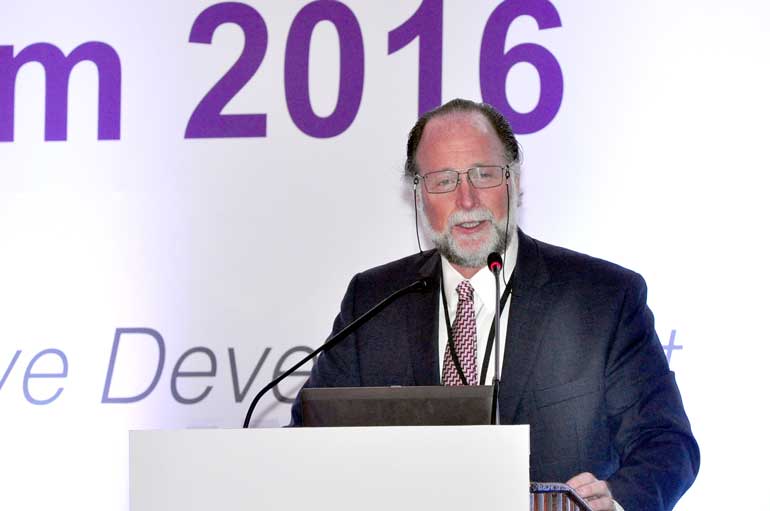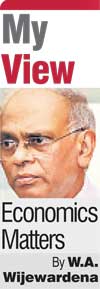- Consult two economists and get a multitude of opinions
Ricardo Hausmann - AFP
This is not a new problem with economists. Kautilya, the fourth century BCE guru on economics, gave a fine piece of advice to his king in the Arthashastra on how to tackle economists. He said consult them because it is better than making decisions alone. But do not consult many because you are likely to get many contradictory and inconsistent opinions. Hence, like a profit maximising producer who minimises the costs, minimise the number of economists to be consulted. But the practical problem is to decide on this ideal minimum number to be consulted.
When one looks at the reaction of many economists based on Sri Lanka as well as abroad to engaging the Harvard University-based Ricardo Hausmann as an economic advisor, it appears that the present Government is also faced with this practical problem.
Harvard monopoly over Sri Lanka Economic Forum 2016
When organising its maiden Sri Lanka Economic Forum in 2016, the Government had heavily relied on Harvard University’s Center for International Development or CID for advising it on how Sri Lanka’s future economic policy should be framed.
The mandate given to Hausmann was clear: diagnose the ailments from which Sri Lanka’s economy is suffering today and provide a set of sustainable policy prescriptions based on the country’s capacity as well as the emerging global developments.
He was accompanied to the forum by another distinguished economist, Joseph Stiglitz of the Columbia University, who had been an ardent advocate of government-sponsored stimulus policies for taking slow-growing world economies out of recession. Stiglitz is a unique case, having been the recipient of the prestigious Nobel Prize twice, once for his work in the field of economics and again for his efforts with respect to the environment.
There is clearly an American bias in seeking policy advice here. But it is understandable since the Government had been helped in bringing these eminent economists to the country by another US organisation called the Open Society Foundations, initiated by its founder George Soros, master strategist and billionaire philanthropist. Thus, the three bigwigs at the Sri Lanka Economic Forum were Ricardo Hausmann, Joseph Stiglitz and George Soros, all US-based thinkers.
Sri Lanka is notorious for consulting foreign experts and then dumping their suggestions
This is not the first time Sri Lanka has sought advice from foreigners to make decisions about its economic destiny. In the late 1950s, the Bandaranaike government invited a dozen key economists of the day to do the same job which the Soros-Stiglitz-Hausmann trio is required to do today. The papers which these economists submitted to the Bandaranaike government were published under the title ‘Papers by Visiting Economists’ by the National Planning Secretariat headed by another distinguished economist, Gamani Corea.



